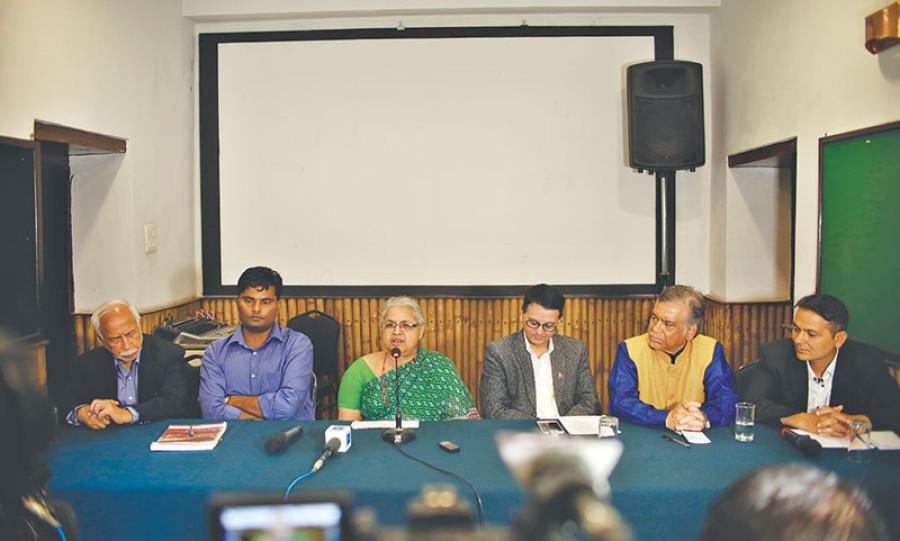National
Protest ban ‘unconstitutional’
Civil society members including former chief justice Sushila Karki have said it is unconstitutional to bar anyone from protesting peacefully, accusing the government of showing autocratic character by attempting to silence people.
Civil society members including former chief justice Sushila Karki have said it is unconstitutional to bar anyone from protesting peacefully, accusing the government of showing autocratic character by attempting to silence people.
Addressing a press meet organised by Public Advocacy Forum, a platform of civil society members including former CJ Kalyan Shrestha and Senior Advocate Surendra Bhandari, in the Capital, Karki said it is the streets where people raise their voice when they are not heard. She called it “unfortunate” that the leaders who assumed power through protests were trying to put curbs on the fundamental right to peaceful protest.
Karki slammed the government’s recent decision to allocate only seven places in Kathmandu for protests and to restrict Dr Govinda KC from staging his 15th hunger strike at the Karnali Academy of Health and Sciences in Jumla. After Dr KC’s announcement, the local administration declared prohibited areas and confined him to the local covered hall which lacks even electricity supply.
“It’s the public place where one speaks against injustice. Does this government want someone to raise their voice in the jungle?” she questioned. Karki also shared her observation that the ruling coalition had shattered popular hope that the KP Sharma Oli-led government would do something good, leading the public to generalise that all political leaders demonstrate similar traits while in power.
She also charged the parties with showing dual character when they are in power and in the opposition. Nepali Congress leaders who are queuing to see Ganga Maya Adhikari, who has been on a hunger strike for the last 34 days, did not have the urge to do so when they were in power, Karki remarked. She criticised CPN-UML leaders for their lack of concern for the woman’s fight for justice for the insurgency-era murder of her son Krishna Prasad Adhikari even as they visited her frequently when another party led the government.
Speaking at the programme, former vice-chancellor of Tribhuvan University Kedar Bhakta Mathema said the government had deceived the country by coming up with a new bill on health education going against the provisions of the Health Education Ordinance. The law was based on the report drafted by a panel he led. Mathema said that Dr KC’s demand for a halt to university affiliations for medical colleges in Kathmandu Valley would contribute to decentralisation of medical services in the country.
Currently, the central development region has one medical college for 800,000 people but there is only one for 3.6 million and 2.5 million people in the mid-western and far-western regions, respectively. “How can a medical college which doesn’t have its own hospital produce good doctors?” Mathema questioned.




 9.6°C Kathmandu
9.6°C Kathmandu













